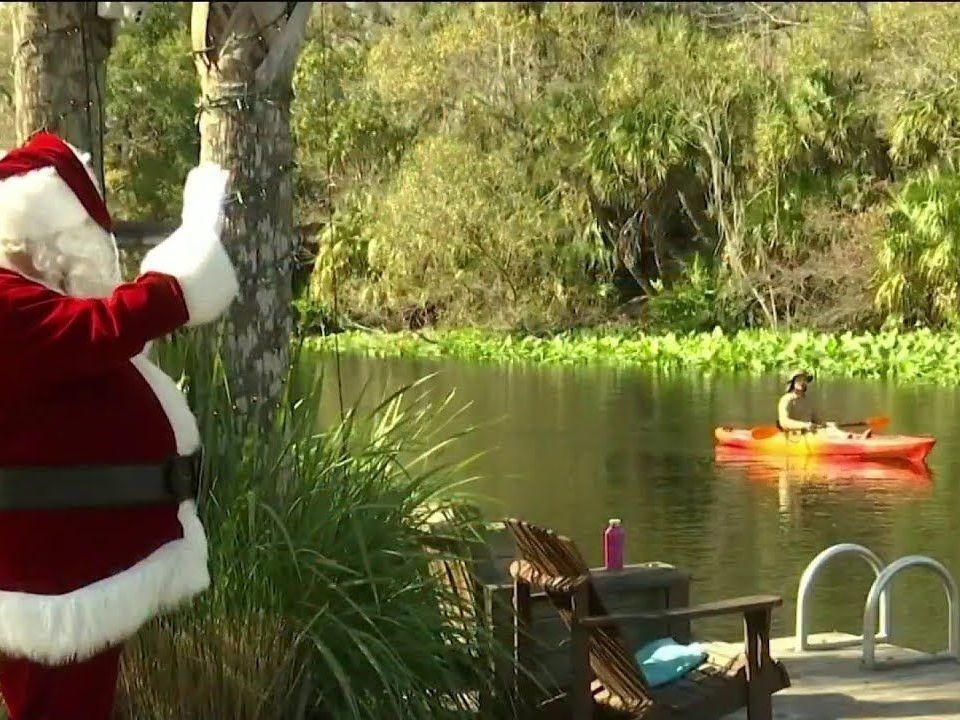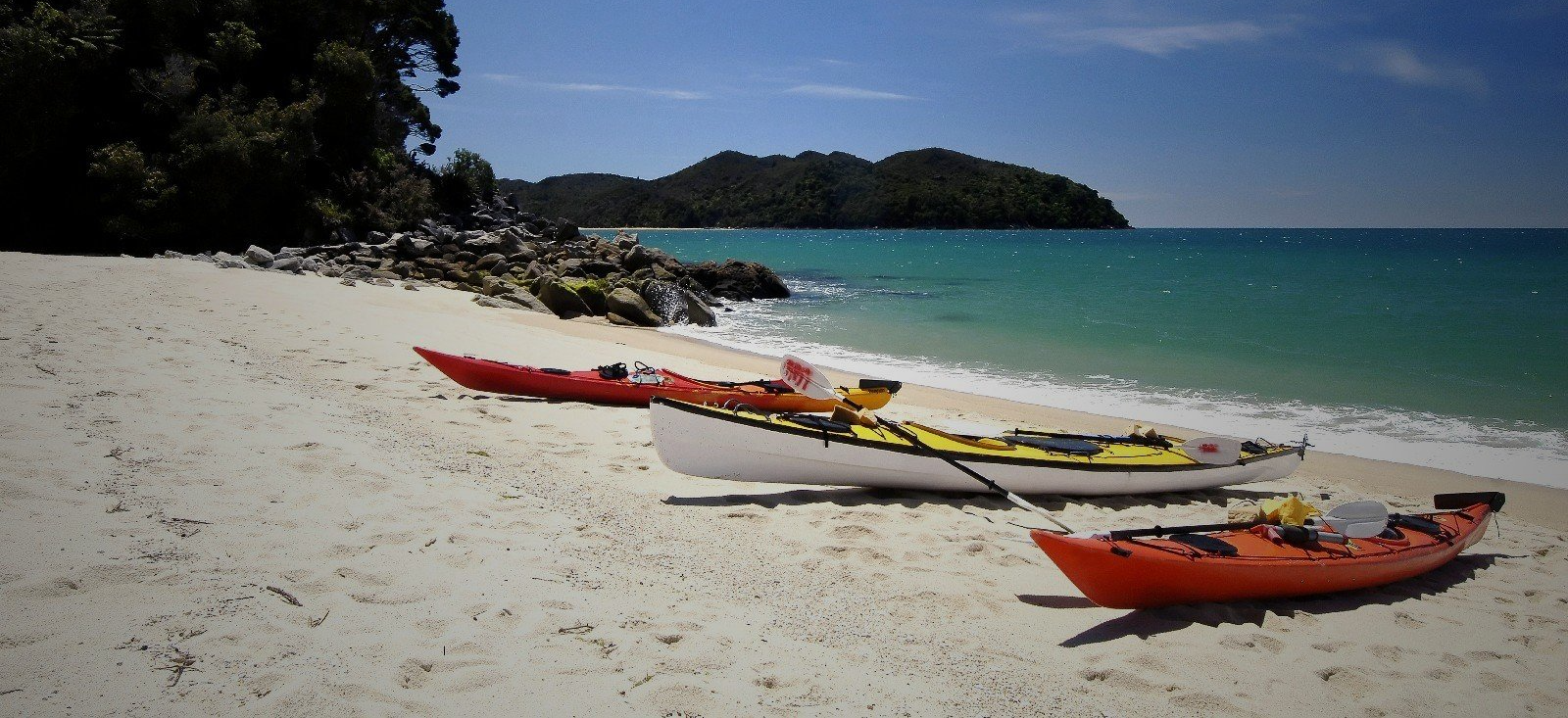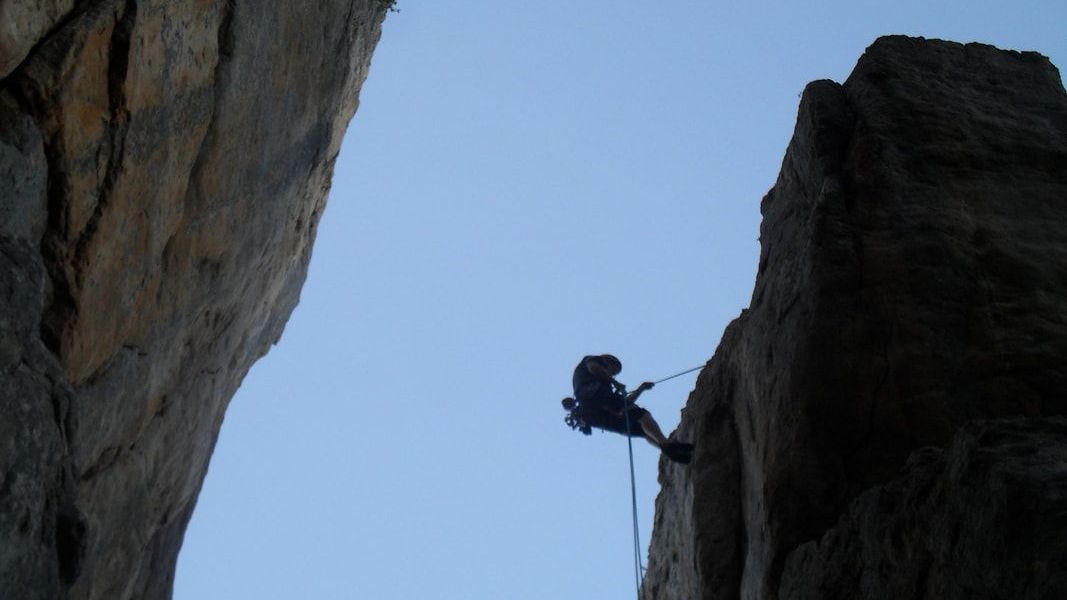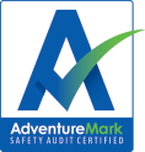AdventureMark
NEWS

by Mike Pennefather
•
28 Nov, 2023
Please remember, just because you haven’t necessarily been audited against the new requirements, doesn’t mean you are not subject to them. When we transition to the new Adventure Activities Regulations on 1 April 2024, all Adventure Activity Operators are subject to those Regulations, regardless of when your last audit was, or when the next one is scheduled. As a WorkSafe registered Adventure Operator, it is your responsibility to know what the rules are that you are subject to. If you’re not sure about the changes, it’s a good time to discuss them with your technical adviser(s). A good technical adviser will be up to speed with the changes, or will be bringing themselves up to speed. It’s a common theme but we always recommend planning ahead to reduce stress. WorkSafe need to review certification decisions carefully before they can update your registration. If you leave your audit right up until your certification expires, it’s likely that WorkSafe won’t have updated your registration before that expires, putting your ability to operate at risk. The Certification Scheme allows recertification audits to be done up to three months before the expiry date. So, if you want to reduce the stress, and risk, of leaving things until the last minute we can get your audit rolling early. Easy! We’ve fielded a few questions about what audits under the new Regulations look like. Please rest assured, they will still be conducted by the AdventureMark team using the audit process you are all familiar with. You will have more direct communication with WorkSafe, for example, instead of AdventureMark submitting your registration, we will complete your audit report and certification and send it to you. You then provide that information to WorkSafe, who process your registration. In addition, you will know that there are beefed up requirements around when and how you communicate risks to potential customers. A ‘belt-and-braces’ approach is advisable here. Try and implement several ways to ensure people thinking about booking can be aware of what dangers are involved. You can brief booking agents on famil trips, publish a risk disclosure on your website, tripadvisor, etc. Consider it from this angle: If a client arrives at your activity and, during the safety briefing says: “I didn’t know that could happen, I want to pull out” then the risk disclosure may not have been sufficient. WorkSafe have published a guide to the coming changes that you can find here: https://www.worksafe.govt.nz/topic-and-industry/adventure-activities/changes-to-the-adventure-activities-regime-what-they-mean-for-you/

by Mike Pennefather
•
28 Nov, 2023
What a year it has been! We want to extend a public heartfelt thank you to the AdventureMark team of auditors and technical experts. The roles carry a real sense of responsibility and thanks need to be extended to the crew who put in the mahi to help our operators understand the rules and get their audit requirements done in these stressful times. It is with reluctance that we have accepted Simon Reynolds’ resignation from AdventureMark. Simon has been with AdventureMark from the very beginning, providing us with expert advice and passionate service to the off-road and event operations he has audited for almost a decade. Simon’s next move is to spend more time in the bush and exploring rivers in his inflatable jetboat. Simon, we are confident your clients will share our disappointment, your wealth of experience and practical approach will be missed by everyone. Thanks for all your hard work since the beginning, you’ve helped get us where we are today, and your efforts are much appreciated. We also want to congratulate all the AdventureMark certified operators for getting their audits completed. It’s been heartening to note that most operators have developed a solid understanding of the Adventure Activities Regulations and the relevant Standards and good practice references for the relevant activities. If your 2023 report was overall positive, it’s likely that you are well-positioned to be ready to transition to the updated Regulations and Standard in 2024. Please note that the AdventureMark office will be closed from 20 December to 15 January. If you need to submit information to us, please ensure you do it well before 20 December.

by Hemi Morete
•
09 Aug, 2023
A few operators have asked why we’re reminding them that their recertification audits are due several months before the due date. The short answer is to reduce stress at the last minute. Below is a simple list of the steps to have your recertification completed and, more importantly, your WorkSafe registration updated. First, what’s the difference between certification and registration? Certification comes from us, your certification body. We can issue a certificate once we’ve completed a certification audit. The certificate and audit reports then go to WorkSafe, who review that documentation and, if satisfied, register you as an Adventure Activity Operator. The legal requirement is registration so, if you registration is not current, you could be in breach of the Health and Safety at Work (Adventure Activities) Regulations 2016. Recertification steps: Get a reminder email from us, nice and early to prevent last minute stress that there won’t be time to get it all done. Complete an Operator Profile Form and return it to us. We send you a cost estimate and contract, which you review and, if satisfied, sign and return to us. Then we can appoint your auditor, who will send you a document review checklist. You complete this (at your leisure because we’re nice and early) and return it to us, along with any supporting evidence. While we’re reviewing the documentation, we should plan for your onsite audit so that we can keep travel expenses to a minimum. Last minute plans mean last minute prices. We come onsite to observe your activities, chat to staff, and go through anything we couldn’t ascertain from the initial document review. We’ll always have a closing meeting after the onsite so that you know what the contents of the report will be, including any areas that might need to be worked on. Because we’re planning ahead, you may have time to address any nonconformities before the final report, keeping thins tidier. The final report is then drafted and sent to the audit manager for review and then a certification decision is made and your new certificate issued (this can take up to 5 working days). Once approved, it is then sent to you, and on to WorkSafe. WorkSafe then review the final report and audit documents before making a registration decision. This can more time (up to 20 working days). Your registration is then updated. The New Zealand Adventure Activities Certification Scheme 2023 says that “Recertification audits can occur up to three months before the operator’s certification is due to expire.” so, if you’re keen to get your recertification audit done, please don’t hesitate to get in touch and we’ll make a plan that works for you and fits within the rules we’re subject to.

by Hemi Morete
•
09 Aug, 2023
Have you had a look through the New Zealand Adventure Activities Certification Scheme 2023? This was published in January and contains the ‘rules’ that auditors and audit bodies need to follow. If you’ve ever wondered why we need to do surveillance every year, or if you can extend your certification date, the answer is in this document. Currently, we audit against the Safety Audit Standard for Adventure Activities 2017. Hopefully you’re familiar with the contents of this document by now because it contains the rules that operators need to follow. The next version of this standard for adventure activity operators is due to be published soon. We don’t know when this may be. WorkSafe have indicated that we’re flying a holding pattern until the Adventure Activities Regulations are updated. Until they are, you are still subject to the same requirements as the last few years. The Adventure Activities Regulations 2016 are the 3rd leg of this three-legged stool that hold up the Adventure Activities regime. These are the laws that are attached to the Health and Safety at Work Act that all adventure activity operators need to comply with. MBIE are hoping to take the 2023 version of these Regs to cabinet in the next couple of months. Once ratified by cabinet, the new Regs will be gazetted and come into law. It sounds like the new Standard will be implemented at the same time. We don’t have a crystal ball so can’t say when this will happen. WorkSafe have indicated that it may be later in 2023, perhaps pushed out to 2024 so, for the time being, we recommend this: Refamiliarize yourself with the Safety Audit Standard for Adventure Activities 2017 Read newsletters and articles relating to the Whakaari tragedy and prosecutions. These findings show how the law is interpreted, especially around explicitly disclosing risk, identifying and managing natural hazards, as well as operating parameters and emergency response plans. Keep doing the good work that the New Zealand Adventure Activities industry is renowned for.

by Hemi Morete
•
25 Jul, 2023
So you assess the risks involved in your activities and come up with a nice, neat score on your risk register. Does your assessment consider the chances of something happening in isolation, or do you think about how severe an incident could be if it happened in combination with something else? For example: if I slip and break my ankle at home making dinner, I can crawl to my phone and call an ambulance. I’ll probably be in hospital within an hour. Now, what if I’m solo guiding and I slip and break my ankle in a canyon at 4pm on a windy, cloudy day. I don’t have cell signal but I’ve activated my PLB. Hs the signal gone to the Rescue Coordination Centre yet? Is a helicopter going to fly in this weather? How long will a rescue team take on foot? Will they have the gear and training to get me out the canyon? What about my participants? We can see that the risk of a broken ankle can be significantly different, depending on where and when it happens, although the injury is the same. Has this happened before? Not just to you or your operation, but in the wider industry. Do we know of people suffering anaphylaxis is remote areas? Did they carry EpiPens? Was one enough to control the reaction before emergency help arrived or should we consider additional adrenalin? Have people encountered rapidly rising rivers from rain or dams opening unexpectedly? How did they respond and was their response adequate? Hindsight is demonised as a way of making somebody's decision look wrong, but what if we can use hindsight to our advantage? Sure, we would do things differently, in hindsight. So let’s review these incidents and use them to check our own risk assessments and incident and emergency response plans.

by Hemi Morete
•
05 Jul, 2023
This is a bit strange coming from your auditing body but there’s no real reason to have a huge safety plan The biggest headache for us at AdventureMark is reading huge safety plans! One of my favourite quotes I heard recently is, “I didn’t read the whole thing, but who does?” This leads to the question: Who is the safety plan for? It’s not for the auditor. Your safety plan (SMS, SMP, SOP, AMP,SOG’s, etc) needs to be written in a way that you and your staff have a clear picture of the operation and how to perform each role. If your staff don’t understand what in the plan, it needs to be changed or simplified. 2023 has been a year of 'hurry-up-and-wait' for Adventure Activities. We’re expecting a new Safety Audit Standard for Adventure Activities to be published but this looks like it may only be implemented next year (on a separate note, don’t think of it as a Safety Audit Standard, but rather a Safety Standard: operators have to comply with the Standard every day of operating, but only get audited against it about one a year). Why not use 2023 to have a good look at what your safety plan looks like, what it is supposed to achieve, and whether it could use a really good haircut to be easier for everyone to follow? The changes to the Safety Standard will likely require you to make some minor changes anyway. This is a good opportunity to make the best of the situation. What can I change? Goals and objectives are sometime perceived to be a requirement of the Safety Standard that doesn’t really play a valuable part in operations. In reality, almost every operator has great safety objectives that just aren’t identified as such. Something like renewing outdoor 1st aid quals or upgrading them to a higher qualification is a great objective that’s often overlooked as normal business. Another good update that a lot of us can make is to consolidate all our operational information (how we run activities) into a simple, step-by-step handbook. Imagine how easy it would be to train staff, and have trips run to plan if there was a bulleted method for all the steps from the beginning to end of the activity. Once completed, you’ll probably find you’ve met all the criteria in the Safety Standard around what a SOP is supposed to contain. Document control. When we make any changes, it can be valuable to record what and where these changes are made. This way your staff can see what new information there is since they last looked through the safety plan without having to read through the whole document to find any updates. Have a tidy filing procedure for ensuring that only a single version of the latest documents is usable by yourself and staff. Audits can go over the estimated time because half-way through the operator says, “Oops, I sent you the old version”. I did an audit where three different incident report forms were being used. Taking the time to archive previous versions means you’ll have a simpler safety plan and staff will spend less time on paperwork and more time with your customers. Technical advisors are probably the most underrated part of the whole Adventure Activities Certification Scheme. While there is a lot of good intellectual property in businesses, safety should be shared and not be hidden from other people in the industry. When incidents happen, everyone in the industry should have the opportunity to learn from them, so that something similar can be avoided in the future. Discussions with other operators, guides and instructors should happen wherever and whenever possible. Getting someone else to look over your SOP or risk management plan normally always provides a different perspective and helps identify things that we can overlook because we’re working in it every day. This should be a two way street, I bet you’ve got lots of valuable insight for them. This is not a comprehensive list of improvements and considerations. I’d recommend going through the new Standard when it is published and ask yourself, “how can I use each criteria to update my safety plan to me more user-friendly?”. The requirement to follow the Adventure Activities Regulations isn’t going to go away. The best thing we can do is make it for us as best we can.

by Hemi Morete
•
24 Nov, 2022
Communicate with your auditor. Audits are meant to be an open, transparent process. There shouldn't be any surprises. Make sure you are clear on what the scope (what activities/ locations are in or out) of the audit is. Once we complete an audit and you realise you've forgotten to include an activity you're intending to provide, it's likely to be an expensive process to try to add it to your scope of activities. Remember to include travel expenses when budgeting for your audit. Cost estimates can be fairly accurate for the auditing work but, until you and your audit team have made a plan for the audit, we can only provide you with a breakdown of the disbursements. This is another good reason for communicating with your auditor. Use good technical advisors. We say this a lot, mostly because it's true. If you struggle with the audit process, look for an operator who seems to get through it easily and finds good value in it. They could be of real value to you to help you understand some requirements and to discuss any news in the industry, like new or increased risks and improved ways of doing things in your operation. Accept that your audit needs to happen if we're going to continue to provide Adventure Activities. Be open and help the auditor and technical experts to get a good look at your operation to be able to make an accurate assessment. Certification bodies and auditors don't make the rules, we have to follow them. Shooting the messenger doesn't change the message, it just means you're less likely to get the message. Being sad about having to work in the rain makes you less happy. It doesn't make less rain. Make the most of the process. Ensure you know what you are being audited against. An audit needs to be an objective assessment against a specific set of criteria. If you know what those criteria are, then you know what the auditor is looking for. Make sure you know which standard and guidelines are being used. An audit is actually a very valuable and should be embraced as a health-check of your systems and processes. If you ever end up in an investigation, you're going to be asked all the same questions that happen in an audit. Think of an audit as a fairly consequence-free test to see if your systems hold up under the scrutiny of an investigation.

by Hemi Morete
•
24 Nov, 2022
A lot of our operators are due for the big recertification audit around August- October 2023. Here are some things to keep in mind between now and your certification renewal: Your certification date is the date that your certificate expires, not the date to be audited . Well-prepared operators should aim to have their audit completed and put to bed at least two weeks before the expiry. Remember that after your auditor finishes your closing meeting and leaves, they still need to go over all your audit information and write your audit report. The audit and report then needs to be reviewed and passed through the moderation process and then approved by the certifier. Once that’s done, a certificate is issued and all the information is sent to WorkSafe. WorkSafe will be processing all the other recertifications at the same time, so from the time AdventureMark gets your report and certificate to WorkSafe it can take around 10 working days for them to accept your certification and renew your registration on the WorkSafe register. If that doesn’t happen before your existing registration expires, you may find yourself exposed to operating without current registration, which is a breach of the Adventure Activities Regulations. So the message? Plan ahead and start early. Q: I submitted on the review of the Safety Audit Standard for Adventure Activities, what is happening there? MBIE and WorkSafe will be working through all the submissions. Adventure Activities is a small industry so you can probably expect your submission to be taken seriously. This is a good thing. WorkSafe have indicated that we can expect a revised standard in April 2023. This means that, for a lot of us, the next audit will be conducted against an updated standard. Until the new Safety Standard is published, we don’t know what it will look like but here are some recommendations: Review the existing standard to be comfortable with the content, we don’t foresee enormous changes. Review the proposed changes to the standard. It’s likely that, unless there are lots of submissions proposing something very different, the new requirements will already be fairly apparent. Keep up to date with industry newsletters. TIA, RA, and all the specific activity sector associations, etc, all work to advocate on your behalf. AdventureMark publishes articles like this one and Facebook posts to keep you informed. Change is coming and the only way to keep on top of it is to stay on top of news. Follow the news. Our industry hasn’t had many instances of prosecutions or trials so the outcomes of the Whakaari tragedy court cases show us how lawyers and judges interpret the rules that we are subject to. When the new standard is published, try to conduct an internal audit against it. Don’t wait for your next audit to identify all the areas where change is needed. There is opposition to audits, and how audits are conducted. We definitely acknowledge that there are operators who work very hard to keep their customers safe and provide an enjoyable activity. Sometimes, compliance requirements can even be seen to get in the way of that. That doesn't mean standards and rules aren't needed (they are as they provide a baseline) but if everyone involved had a better understanding of the rules and requirements, we’d all be able to make the system fit better for our own operations.
Integra/AdventureMark Blue Certification is JAS-ANZ accredited. AdventureMark Blue certification is approved by WorkSafe NZ under the WorkSafe NZ Adventure Activities Certification Scheme.
2 The Courtyard
Village Exchange
4 Te Aute Road
PO Box 8940
HAVELOCK NORTH 4130


